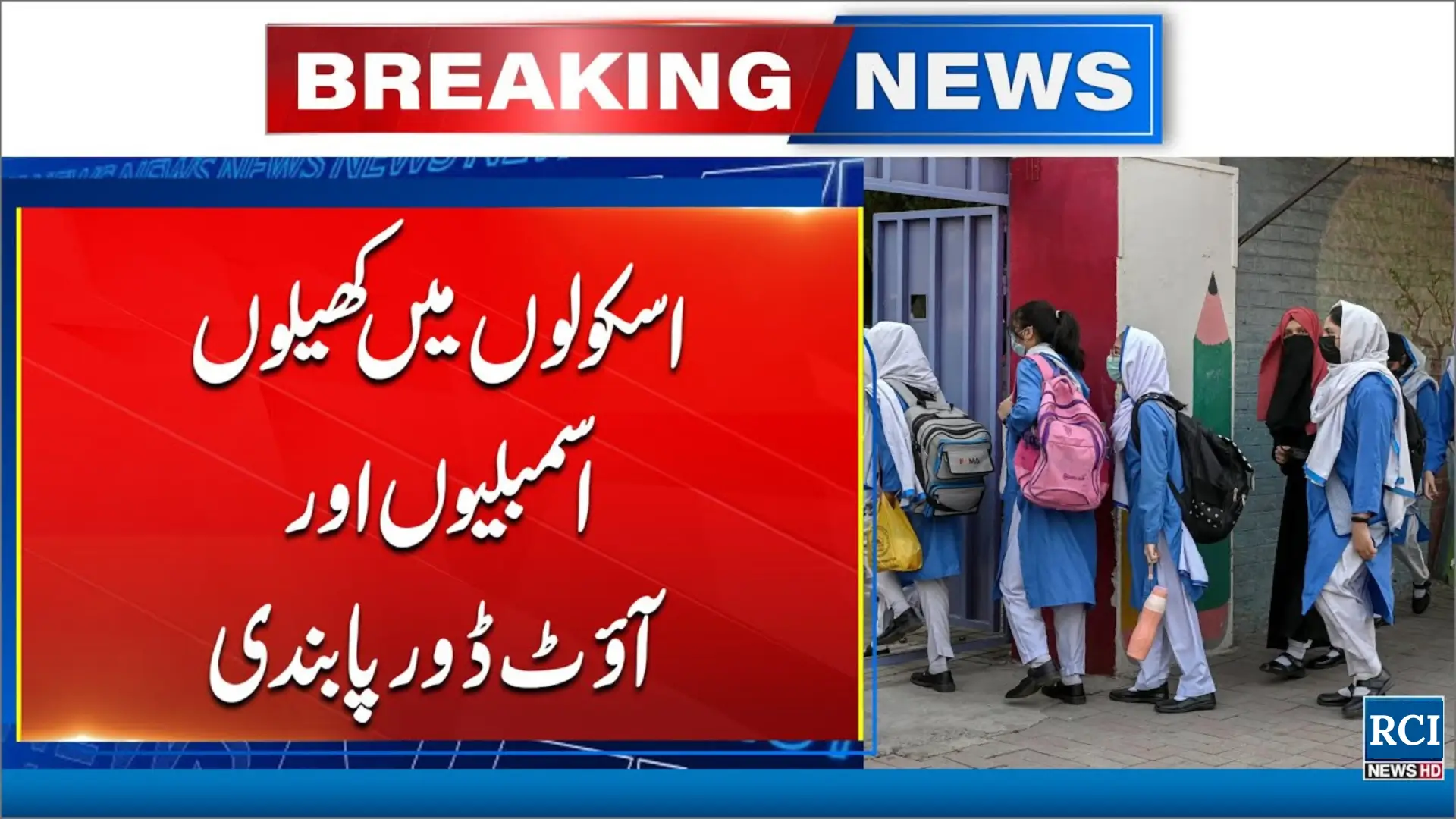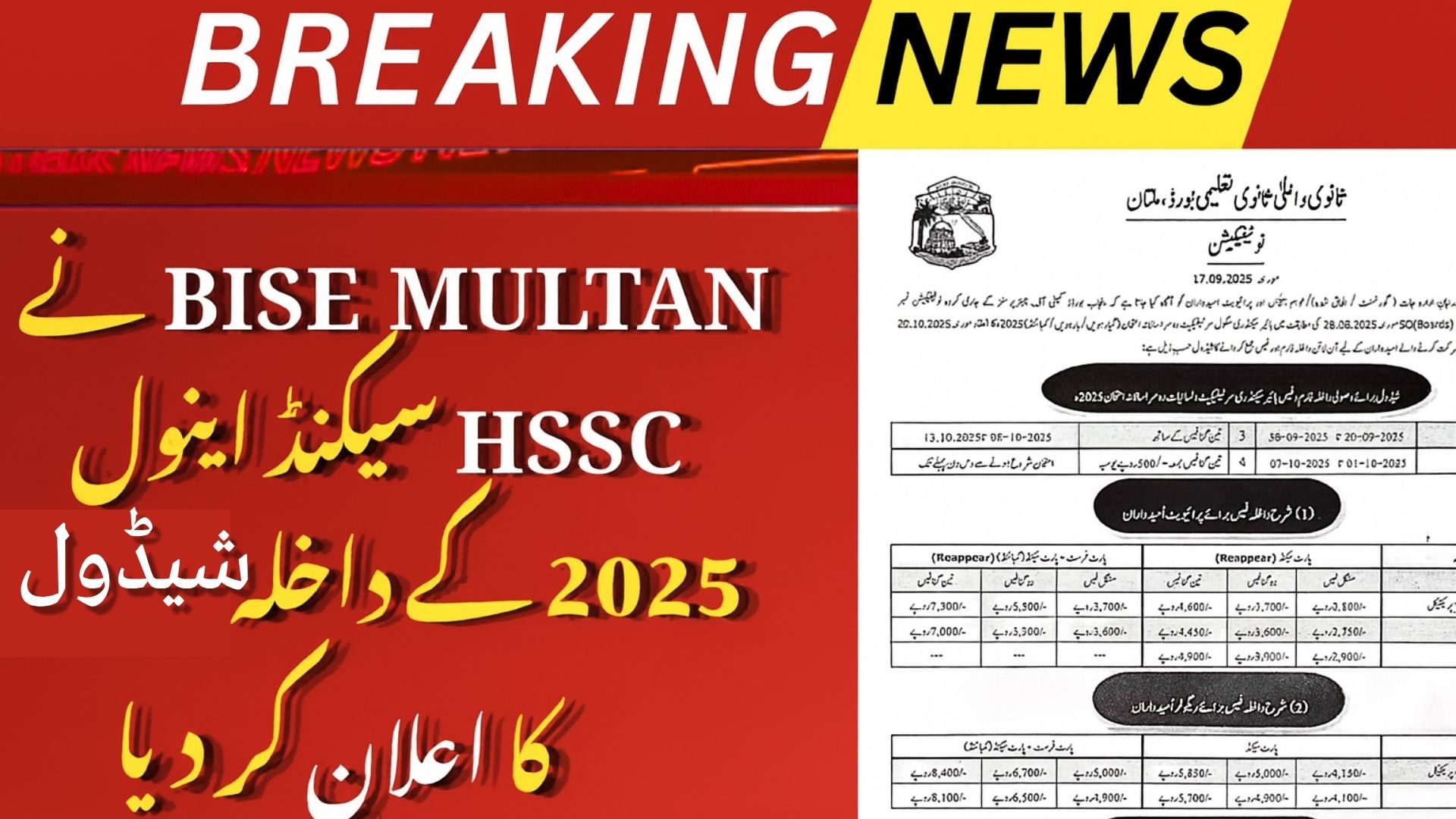Punjab Bans Outdoor Sports and Assemblies in Schools to Combat Smog. The Punjab Education Department has announced strict emergency measures to protect students’ health as smog levels continue to rise across the province. In response to increasing air pollution, officials have directed schools to suspend all outdoor activities and sports on smog-affected days. The initiative aims to safeguard students from the harmful effects of smog while promoting awareness about precautionary measures.
Smog Threat in Punjab
Recent reports show that smog levels in major cities and districts of Punjab have reached concerning levels, posing serious health risks for children. Exposure to high levels of air pollution can lead to respiratory problems, eye irritation, asthma attacks, and other health issues, particularly in younger children. In order to mitigate these risks, the Punjab Education Department has taken proactive steps to implement strict guidelines for schools during the smog season.
Official Notification to Schools
According to an official notification, Chief Executive Officers (CEOs) of District Education Authorities (DEAs) have been instructed to ensure full compliance with these measures. The notification emphasizes the need for immediate action and outlines responsibilities for school administrators, teachers, and district authorities. This proactive approach is designed to minimize health hazards for students and staff during periods of high smog.
Suspension of Outdoor Activities
The key directive from the Punjab Education Department is the suspension of all outdoor activities during smog-affected days. This includes morning assemblies, physical training, sports events, and other outdoor gatherings. By limiting exposure to polluted air, the department aims to protect students from harmful airborne particles and reduce the risk of respiratory illnesses.
Awareness Campaigns for Health Protection
Schools are also required to launch awareness campaigns to educate students, teachers, and parents about health hazards caused by smog and precautionary measures. These campaigns include instructions on: wearing masks, staying hydrated, avoiding unnecessary outdoor exposure, and taking special care of children with asthma or other respiratory conditions. Schools are encouraged to use their official social media channels to share photos, videos, and updates of awareness activities, ensuring maximum reach and engagement.
Classroom Safety Measures
In addition to outdoor restrictions, schools have been instructed to maintain safe classroom environments. School heads must ensure that classrooms are clean, well-ventilated, and free from dust or pollutants. During peak smog hours, windows and doors should remain closed to prevent the entry of harmful air particles. These measures are critical to ensuring a healthy indoor learning environment for students.
Waste Disposal Regulations
The department has strictly banned burning of garbage or litter inside school premises. Proper waste disposal arrangements must be implemented to prevent additional air pollution. This includes setting up dedicated bins, regular waste collection, and educating students about the dangers of burning waste. Schools are expected to maintain high hygiene standards to complement smog-related health precautions.
Maintaining Medical Records
To respond effectively to health emergencies, schools are instructed to maintain emergency medical records for students with respiratory or heart conditions. Teachers are required to stay alert for any signs of distress among students and be prepared to take immediate action. This measure ensures that vulnerable students receive timely medical attention during smog episodes.
Coordination with Health Authorities
Each district must appoint a focal person responsible for coordinating with local health departments. This coordination ensures a quick medical response in case of emergencies and allows schools to receive timely guidance on smog-related health issues. District authorities are also tasked with monitoring the Air Quality Index (AQI) daily and issuing instructions to schools based on current pollution levels.
Daily AQI Monitoring
The Punjab Education Department has emphasized the importance of daily monitoring of air quality. DEAs will track AQI levels and communicate relevant instructions to schools to ensure compliance with smog safety measures. By staying informed about pollution levels, schools can make real-time decisions on suspending outdoor activities or implementing additional precautions.
Reporting and Compliance
Schools are required to submit weekly compliance reports to the Education Department, starting from October 5, 2025. These reports must include details of awareness campaigns, focal person information, and any actions taken to ensure student safety. The department will review these reports to ensure that schools adhere to smog-related guidelines and maintain accountability in protecting student health.
Importance of Smog Precautions
The Punjab government’s initiative highlights the serious health risks associated with smog exposure. Children are particularly vulnerable to air pollution because their lungs are still developing, and they spend significant time in outdoor environments. By implementing strict measures in schools, the government aims to reduce hospitalizations, prevent respiratory diseases, and promote awareness about environmental health.
Role of Teachers and Parents
Teachers play a crucial role in ensuring that students follow smog safety guidelines. They must supervise students indoors, educate them about wearing masks, and maintain a safe classroom environment. Similarly, parents are encouraged to monitor their children’s health, provide protective gear such as masks, and limit outdoor exposure when smog levels are high. Collaboration between schools and parents is essential to effectively protect children during the smog season.
Looking Ahead
As smog continues to affect Punjab, the government may extend these measures and implement additional precautions to protect public health. Schools are advised to stay updated on air quality reports, follow government notifications, and ensure that all preventive measures are strictly implemented. Public awareness and proactive action are key to mitigating the negative effects of smog on students and the community at large.
Conclusion
The Punjab Education Department’s decision to ban outdoor sports and assemblies in schools demonstrates a strong commitment to student health and safety amid rising smog levels. By suspending outdoor activities, implementing awareness campaigns, ensuring classroom safety, and coordinating with health authorities, the government is taking comprehensive steps to protect children from air pollution.

















